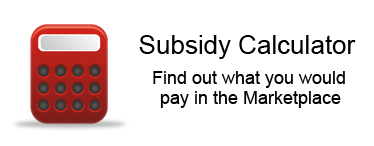 On May 2, 2014, the U.S. Department of Health and Human Services (HHS) revealed a new special enrollment period designed to allow current COBRA participants to terminate COBRA coverage and purchase a plan through the Marketplace between May 2, 2014 and July 1, 2014. In a bulletin published May 2, HHS cited concerns about whether individuals with coverage under COBRA understood their options for purchasing coverage through the Marketplace during the annual enrollment period that ended March 31, 2014. To remedy possible misunderstandings, HHS provided an additional special enrollment period for COBRA beneficiaries. Simultaneously, the U.S. Department of Labor (DOL) released proposed regulations relating to its model COBRA general notice and election notice, as well as revised model notices containing additional information for COBRA beneficiaries on Marketplace coverage.
On May 2, 2014, the U.S. Department of Health and Human Services (HHS) revealed a new special enrollment period designed to allow current COBRA participants to terminate COBRA coverage and purchase a plan through the Marketplace between May 2, 2014 and July 1, 2014. In a bulletin published May 2, HHS cited concerns about whether individuals with coverage under COBRA understood their options for purchasing coverage through the Marketplace during the annual enrollment period that ended March 31, 2014. To remedy possible misunderstandings, HHS provided an additional special enrollment period for COBRA beneficiaries. Simultaneously, the U.S. Department of Labor (DOL) released proposed regulations relating to its model COBRA general notice and election notice, as well as revised model notices containing additional information for COBRA beneficiaries on Marketplace coverage.
Why is this important? COBRA beneficiaries may be required to pay up to 102% of the full cost of group health plan coverage. COBRA coverage, even for an individual, may cost significantly more than a Marketplace plan with a similar or lower actuarial value. COBRA beneficiaries may be able to purchase a plan that fits their healthcare needs at a lower price, and depending on the situation, may qualify for premium tax credits or cost-sharing subsidies. However, without this special enrollment period, COBRA beneficiaries who were not aware or did not understand their option to terminate coverage under COBRA and enroll in a Marketplace plan could be locked in to coverage under COBRA until the next Marketplace annual enrollment period.
While this is welcome news for some COBRA beneficiaries, there are three important things that employers should know about the new special enrollment period.
#1: The Special Enrollment Period Applies Only to Federally-Facilitated Marketplaces.
Although the HHS bulletin encourages State-based Marketplaces to adopt a similar special enrollment period, individuals living in states that operate their own Marketplace may be out of luck if the state’s Marketplace does not adopt this special enrollment period.
#2: Retroactive COBRA Coverage vs. Prospective Marketplace Coverage
Depending on the employer’s group health plan, a COBRA qualified beneficiary may lose coverage under the employer’s group health plan as an active employee either at the end of the month, or immediately upon the occurrence of the qualifying event. If a COBRA qualified beneficiary elects COBRA during the election period, COBRA coverage will be retroactive to the date of the qualifying event. This is not true for coverage purchased through the Marketplace after an individual loses other minimum essential coverage. Marketplace coverage is prospective only. This difference in the way COBRA coverage and Marketplace coverage operate could lead to either a gap in coverage (if the individual elects Marketplace coverage instead of electing COBRA) or the individual paying higher COBRA premiums until the next Marketplace annual enrollment period opens, if the individual needs the retroactive COBRA coverage to cover claims incurred since coverage termination.
#3: Consider a Targeted Communication to Employees and COBRA Qualified Beneficiaries on Available Coverage Options.
The regulations do not require employers to make any changes, unless the employer is self-administering COBRA. Employers self-administering COBRA should begin using the new COBRA model initial and election notices. However, employers should consider communicating with current employees and COBRA participants regarding the interaction of COBRA and the Marketplace.
Generally, a COBRA qualifying event will also entitle an individual to special enrollment period to purchase coverage outside of the Marketplace annual enrollment. A COBRA qualified beneficiary then has two options: (a) elect COBRA; or (b) enroll in a plan through the Marketplace. This special enrollment period to purchase Marketplace coverage may be lost if an individual elects COBRA. Although an employer is not required to communicate additional information beyond the required COBRA notices, employers may wish to provide employees and COBRA qualified beneficiaries with additional information regarding their coverage options when a COBRA qualifying event occurs. Instead of paying for expensive COBRA coverage, COBRA qualified beneficiaries may wish to explore plans available through the Marketplace and determine whether they might be eligible for any premium tax credits or cost-sharing subsidies. Providing this additional information allows employers to help COBRA qualified beneficiaries to make an informed decision regarding the type of continuing health insurance coverage that is best for them from both a plan design and financial perspective.
For more information, view the Marketplace’s article on losing job-based coverage.


